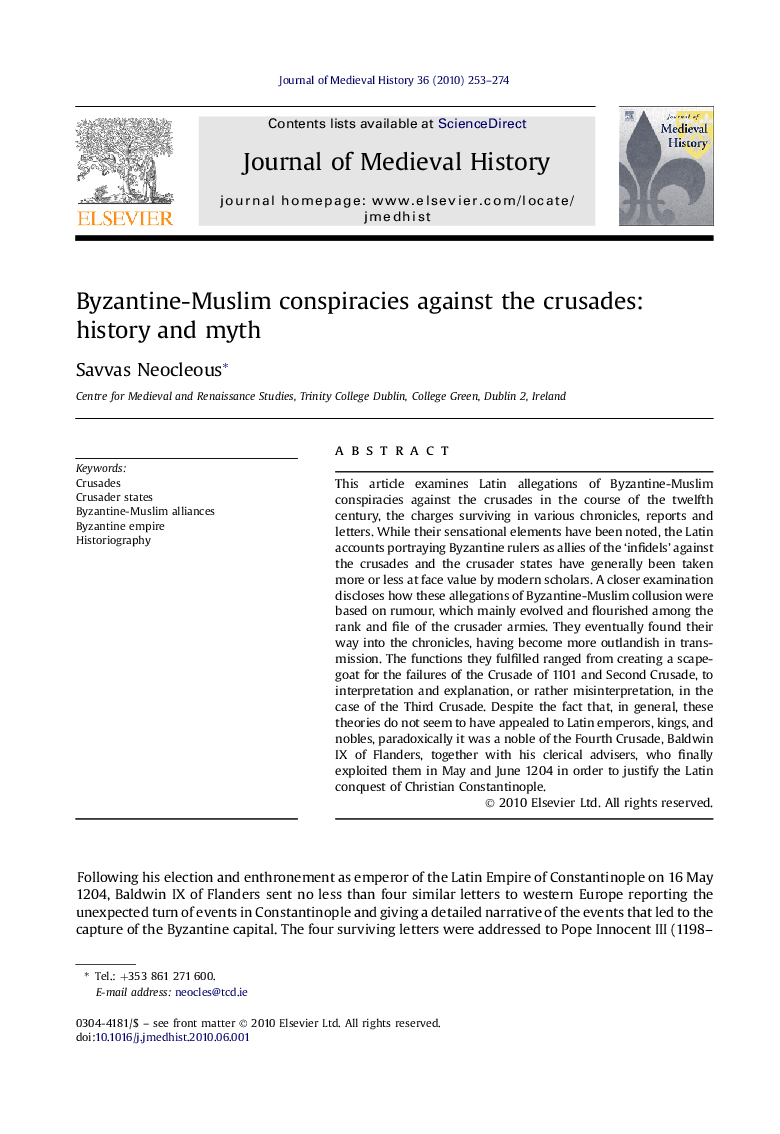| Article ID | Journal | Published Year | Pages | File Type |
|---|---|---|---|---|
| 1159896 | Journal of Medieval History | 2010 | 22 Pages |
This article examines Latin allegations of Byzantine-Muslim conspiracies against the crusades in the course of the twelfth century, the charges surviving in various chronicles, reports and letters. While their sensational elements have been noted, the Latin accounts portraying Byzantine rulers as allies of the ‘infidels’ against the crusades and the crusader states have generally been taken more or less at face value by modern scholars. A closer examination discloses how these allegations of Byzantine-Muslim collusion were based on rumour, which mainly evolved and flourished among the rank and file of the crusader armies. They eventually found their way into the chronicles, having become more outlandish in transmission. The functions they fulfilled ranged from creating a scapegoat for the failures of the Crusade of 1101 and Second Crusade, to interpretation and explanation, or rather misinterpretation, in the case of the Third Crusade. Despite the fact that, in general, these theories do not seem to have appealed to Latin emperors, kings, and nobles, paradoxically it was a noble of the Fourth Crusade, Baldwin IX of Flanders, together with his clerical advisers, who finally exploited them in May and June 1204 in order to justify the Latin conquest of Christian Constantinople.
